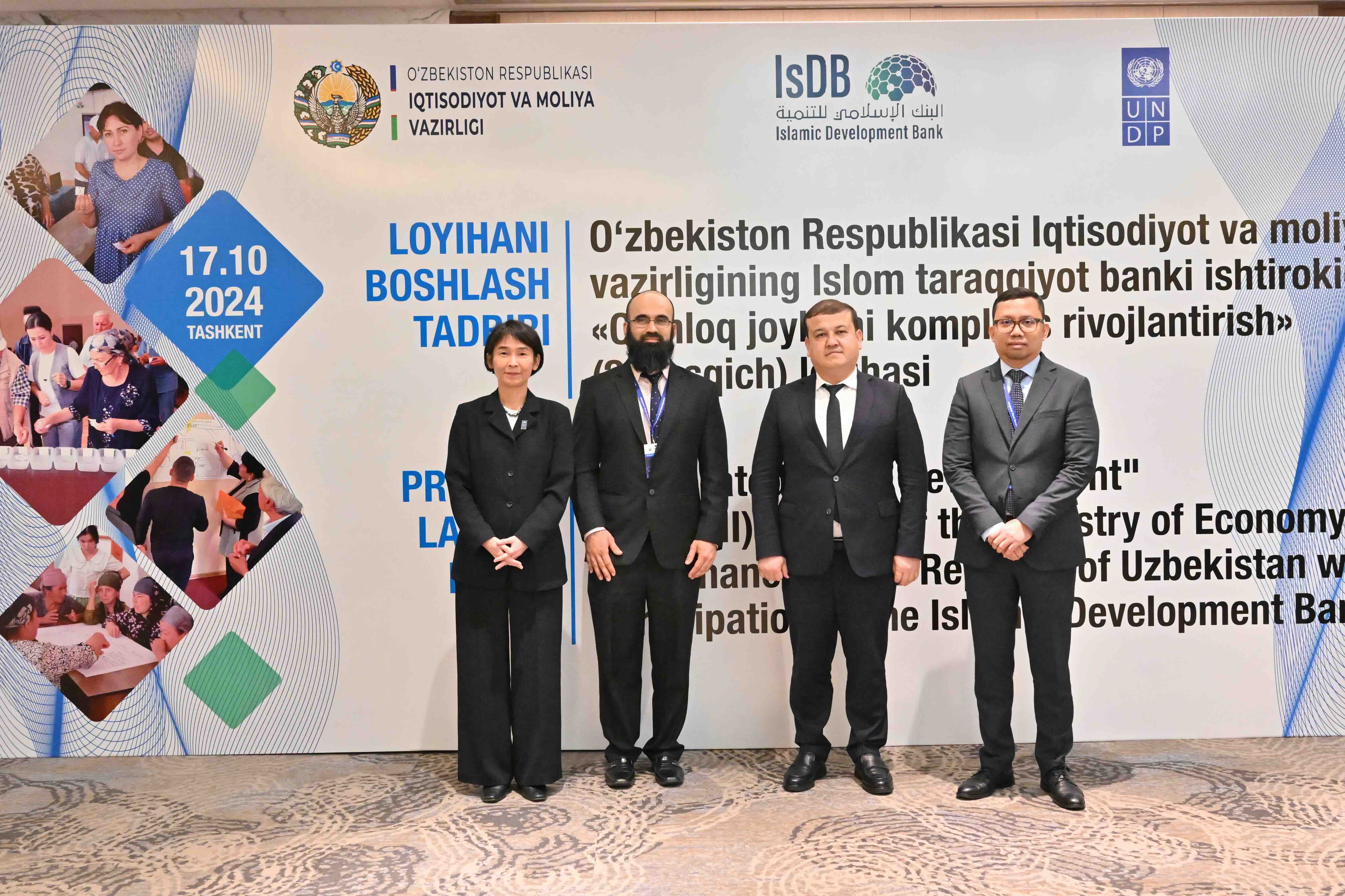Uzbekistan has launched the second phase of its Integrated Rural Development project, continuing efforts to improve socio-economic conditions in remote areas. The project, implemented by the Ministry of Economy and Finance in partnership with the Islamic Development Bank (IsDB) and the United Nations Development Programme (UNDP), will focus on enhancing infrastructure and addressing key community needs over the next four years.

With a budget of $293.5 mn, the project will cover 157 makhallas (local communities) in 21 districts across the Samarkand, Kashkadarya, and Surkhandarya regions, building on the success of the first phase, which began in 2022.
The second phase of the project was officially launched following a Presidential Decree adopted in March 2024. Speaking at the event, Akiko Fujii, UNDP Resident Representative in Uzbekistan, emphasized the progress made in the first phase, stating, “Through our joint effort in advancing sustainable rural development in Uzbekistan, we have made remarkable progress in empowering rural communities, enhancing infrastructure, and addressing critical needs in areas such as education, healthcare, and basic services. Our main aim is to improve the life quality of rural people.”
The project aims to improve road and transport infrastructure, modernize communication networks and power supply systems, and introduce resource-saving technologies. Key social facilities such as schools, kindergartens, and clinics will also be built or renovated.
Wahyu Wijayanto, Operations Team Leader of the Islamic Development Bank’s Regional Hub in Almaty, highlighted the bank’s ongoing commitment to the project: “The Islamic Development Bank is glad to be entrusted by the Government of Uzbekistan to be a strategic partner in the implementation of the Sustainable Rural Development project. We hope to successfully continue this partnership with the Government of Uzbekistan and UNDP.”
Anas Fayyad Qarman, Deputy Resident Representative of the UNDP in Uzbekistan, provided further insight into the project’s community-focused approach, stating, “Almost 49% of Uzbekistan’s population lives in rural areas. UNDP is at the heart of this work, focusing on empowering communities in decision-making about their needs, whether in education, healthcare, roads, or other critical infrastructure. Communities are empowered to participate in the process and prioritize projects to develop their makhallas or regions.” He added that the second phase will extend these efforts to 157 new communities in the Samarkand, Kashkadarya, and Surkhandarya regions, based on the successful community development plans created during the first phase.
Qarman also addressed some of the challenges the project faces: “One challenge we face is filtering the community’s needs to ensure the right investments are made. While many projects are genuine, they might not always be the most critical for the community’s development. Our role is to help communities identify their top priorities and utilize resources, such as those from the Islamic Development Bank, effectively.”
The focus on empowering women and children was also highlighted as a core element of the project. Qarman explained that “women play a critical role in the sustainability of communities. UNDP ensures that women’s economic empowerment is a priority, as they are key pillars in managing households and overseeing development projects in their communities.”
As a result of the second phase, the project is expected to improve the living standards of more than 622,000 people in rural areas, contributing to inclusive and sustainable growth in Uzbekistan.
The first phase of the project, which has been active since 2022, similarly focused on improving living conditions in 170 makhallas in the regions of Karakalpakstan, Khorezm, Bukhara, and Navoi. It identified 900 subprojects for construction and renovation, aimed at improving infrastructure and professional skills in those communities.
Comments (0)